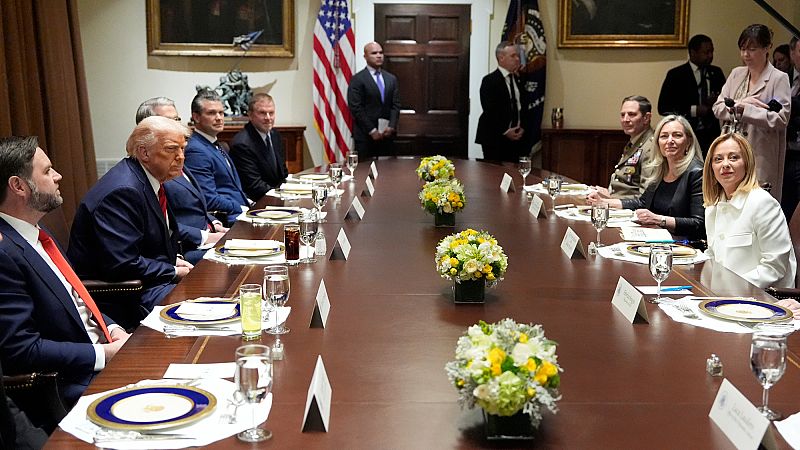Trump sparks backlash after remarking about Congo

U.S. President Donald Trump drew criticism and confusion after making a dismissive comment about the Democratic Republic of the Congo during a high-profile meeting with Italian Prime Minister Giorgia Meloni at the White House.
While discussing U.S. border security and migration policies—topics where the two right-wing leaders find common ground—Trump claimed that criminal elements from across the world were being released into the United States. “They released jails, Giorgia, from all over the world, and released them not just [from] South America, but all over the world—the Congo in Africa. Many, many people come from the Congo. I don’t know what that is, but they came from the Congo and all over the world they came in,” Trump said.
The remark, particularly the phrase “I don’t know what that is,” referring to Congo—a nation of over 100 million people and one of Africa’s largest countries—has triggered widespread backlash online. Critics accused Trump of ignorance and of reinforcing harmful stereotypes about African nations.
Despite the controversy, Trump doubled down on his assertions about lax border policies under current U.S. leadership, framing the issue as a national security threat due to the alleged influx of foreign criminals. “We had a great border four years ago, but we have a border now that's even tighter,” he said. “We need to get murderers and drug dealers and people that were in jail… from all over the world.”
The conversation between Trump and Meloni also touched on global geopolitics. While the two leaders see eye-to-eye on curbing migration and promoting nationalist values, they differ sharply on the war in Ukraine. Meloni, unlike Trump, has been a staunch supporter of Ukraine, and her government is playing an active role in discussions around the country’s postwar reconstruction.
Trump, for his part, has repeatedly urged Meloni to increase Italy’s defense spending to meet NATO’s target of 2% of GDP. Italy’s military budget currently stands at 1.49% of its GDP—among the lowest in Europe.
Yesterday

